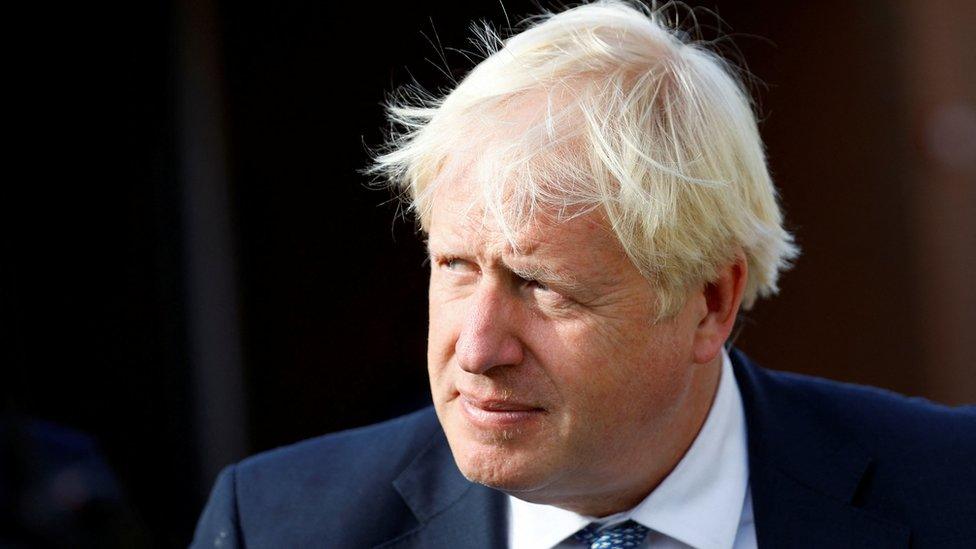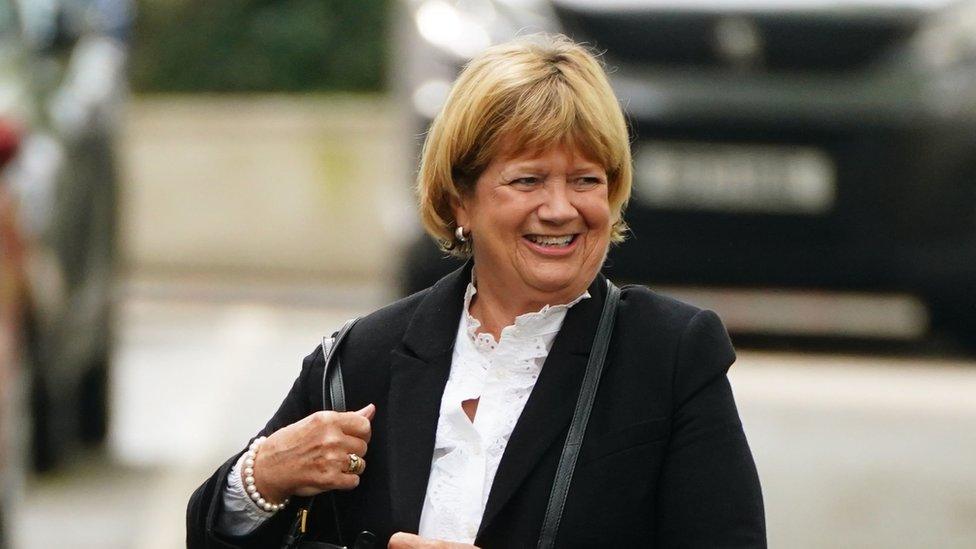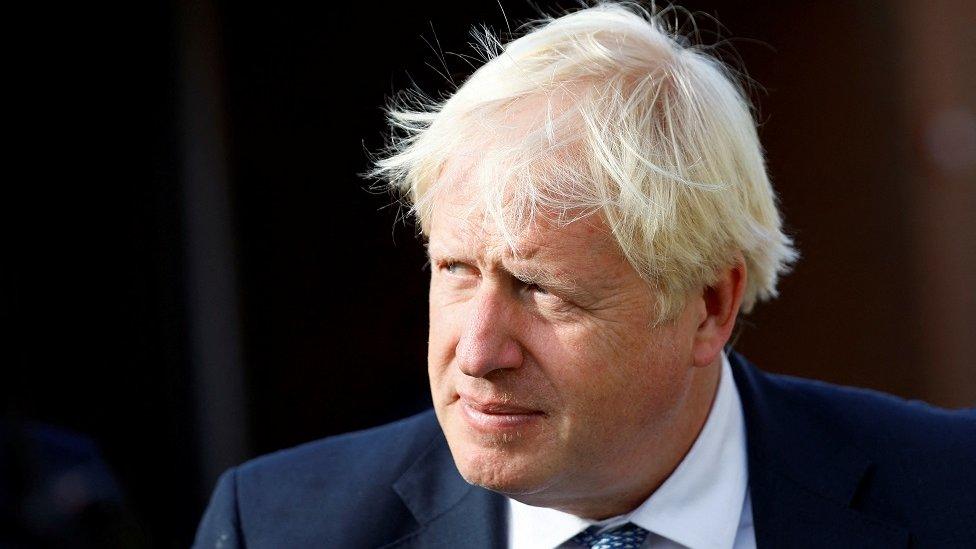Government loses court battle over Boris Johnson's Covid WhatsApps
- Published

The inquiry requested to see messages on Mr Johnson's devices from a group chat set up to discuss the government's pandemic response.
The government has lost its legal challenge to prevent the Covid inquiry from seeing Boris Johnson's WhatsApps, diaries and notebooks in full.
The Cabinet Office had argued it should not have to hand over irrelevant material, but inquiry chair Baroness Hallett said it should be up to her to decide what is relevant.
The government has accepted the ruling.
It would work towards handing over the material requested by next week, Downing Street said.
"All elements of this will be discussed in more detail with the inquiry", No 10 added, describing the judgement as the "sensible" and the "appropriate way forward".
The Covid inquiry said it was "pleased" with the High Court verdict and added that inquiry chair Baroness Hallett expected to received the material by 16:00 BST on Monday 10 July.
The decision by the court is likely to strengthen the authority of the inquiry and its ability to demand evidence.
In its ruling, the court said , externalinquiries should be allowed to "fish" for documents.
It said such exercises could potentially lead to the inquiry getting "some irrelevant material".
Lord Justice Dingemans and Mr Justice Garnham said Baroness Hallett would return documents she found "obviously irrelevant".
The judges also suggested the Cabinet Office could make its case directly to the inquiry about which documents should be considered irrelevant.
The court's ruling does not mean that the public will get to see the documents in full as the inquiry could apply its own redactions. It may also decide against making them public at all.
Responding to the court's verdict, Deborah Doyle, a spokesperson for Covid-19 Bereaved Families for Justice UK group, said: "This judicial review was a desperate waste of time and money.
"A successful inquiry could save thousands of lives in the event of another pandemic, and it's a disgrace that the Cabinet Office is trying to obstruct it."
Deputy Labour leader Angela Rayner accused Rishi Sunak of "wasting time and taxpayers' money on doomed legal battles".

Baroness Hallett is chairing a public inquiry into the pandemic
Earlier this year the Covid Inquiry - set up by the government to examine decision-making during the pandemic - requested to see WhatsApp messages on Mr Johnson's devices from a group chat set up to discuss the pandemic response.
It also asked to see messages from other politicians including current Prime Minister Rishi Sunak.
The request triggered a row between the inquiry and the government, but also Mr Johnson.
The former prime minister said he was "more than happy" for the inquiry to see his unredacted messages and threatened to send what material he had directly to the inquiry, by-passing the Cabinet Office.
At a hearing of the case last month, government lawyer Sir James Eadie KC said the Cabinet Office had challenged the inquiry's request with "considerable reluctance".
He argued that the government had a "real concern" about people's privacy and notes that some of the material included messages of a personal nature.
In a confidential submission to the court, the Cabinet Office also flagged "messages about border incursions by one foreign state into the territory of another foreign state", as well as "the trial of foreign nationals in the courts of another foreign state".
Representing the inquiry, Hugo Keith KC said letting the Cabinet Office decide which measures were relevant amounted to the government "marking its own homework". He also said it would "emasculate this and future inquiries".

Sign up for our morning newsletter and get BBC News in your inbox.

Related topics
- Published5 July 2023

- Published30 June 2023
